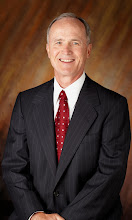Last week Messrs Prince and Rubin, formerly of Citigroup, testified before a government commission looking into the financial meltdown. Having lived through the “experience” I thought I might share some of my earlier Observations.
· Separating the Truth from Fiction
“Of all the offspring of Time, Error is the most ancient, and is so old and familiar an acquaintance, that Truth, when discovered, comes upon most of us like an intruder, and meets the intruder’s welcome.”
Charles Mackay – Scottish Philosopher
If you don’t understand something ask for an explanation. If the explanation doesn’t make sense, then ask for clarification. If it still doesn’t make sense the problem is not you or your capacity to understand. It’s that “it” doesn’t make sense.
Implying that people who “don’t understand” are dense is a common persuasive tactic of people who themselves don’t actually understand (or worse).
The problems we often encounter are not caused by our lack of mental capacity, but by our willingness to go along with such an implication.
-03/24/2008
· Demigod (Demon)
Corporate culture has a negative aspect I would like to address. I call it the deification (often later demonization) of senior executives. These folks are not demigods (or demons). They are not smarter (or vice versa) than before they got promoted (appointed, whatever) and their intelligence and acumen does not vary with the fortunes of the firm. They are humans just like the rest of us. Nonetheless this process goes on constantly, often the result of actions by their subordinates.
We are neither unintelligent nor uneducated and don't help ourselves or the firm by buying into the process I have described.
We should overcome the temptation to do so.
- 07/07/2008
· Standards do serve a purpose
When the justification is that we have to because “well everybody else is doing it and we have to stay competitive” then it’s time to take a deep breath and remember what happened to …..
-09/08/2008
· What happened (11/05/2007)
Here is my take:
People (yes that means everybody) tend to overestimate the accuracy and precision of their knowledge and that often leads to overconfidence and a lack of perception of the amount of risk they are undertaking in making financial decisions. This in turn tends to burn them from time to time and it kick starts the law of unintended consequences hurting others.
10/01/2008 Supplement: Senior executives in financial firms, quasi governmental entities (Fannie, Freddie), and regulatory authorities listened to and accepted the explanation (by senior but subordinate experts) of the “risks incurred” for various proposed offerings and undertakings. The senior executives and those making a proposal were far too confident that the analysis of the risk/reward balance on the proposal was based on accurate and complete underlying data. That is a classic and oft repeated mistake. This led to tragic overconfidence and the assumption of a level of risk that was unknown and unprecedented sending the law of unintended consequences off on a gallop.
But make no mistake we all had a hand in this. Whining that it was someone else’s fault isn’t going to help.
-09/29/2008
· Prognostication is a four letter word (and so is overconfidence)
I was all set with a different Observation for today but then a financial guru testified before Congress on Thursday. I read a transcript of part of his testimony and I just could not resist.What he said was:
It was the failure to properly price such risky assets that precipitated the crisis. In recent decades, a vast risk management and pricing system has evolved, combining the best insights of mathematicians and finance experts supported by major advances in computer and communications technology. A Nobel Prize was awarded for the discovery of the pricing model that underpins much of the advance in derivatives markets. This modern risk management paradigm held sway for decades. The whole intellectual edifice, however, collapsed in the summer of last year because the data inputted into the risk management models generally covered only the past two decades, a period of euphoria. Had instead the models been fitted more appropriately to historic periods of stress, capital requirements would have been much higher and the financial world would be in far better shape today, in my judgment.
What he meant (in plain English) was:
They thought they had it figured out but they didn’t and it turned out to bite everyone on the....*
Overconfident Prognosticators, all of them, including the “guru” (and you know what I think of those guys).
You may wish to reread my 03/31/2008 (“worse than a lollygagger”) and 05/19/2008 (“…use your head Fred…”) Observations. If you don’t have them I will send them to you. I already sent them to the “guru.”
*reminds me of when I was young and used to set off firecrackers with my buddies. Once we set off several hundred in a row without a failure. Then one of didn’t go off after being lit. Georgie Wade stuck his head over the darn thing; it flared up and burnt his eyebrows off.
-10/27/2008





Yes, now they are sorry. Just like the former Chairman of Lehman Brothers, Washington Mutual, Bear Stearns.....
ReplyDelete